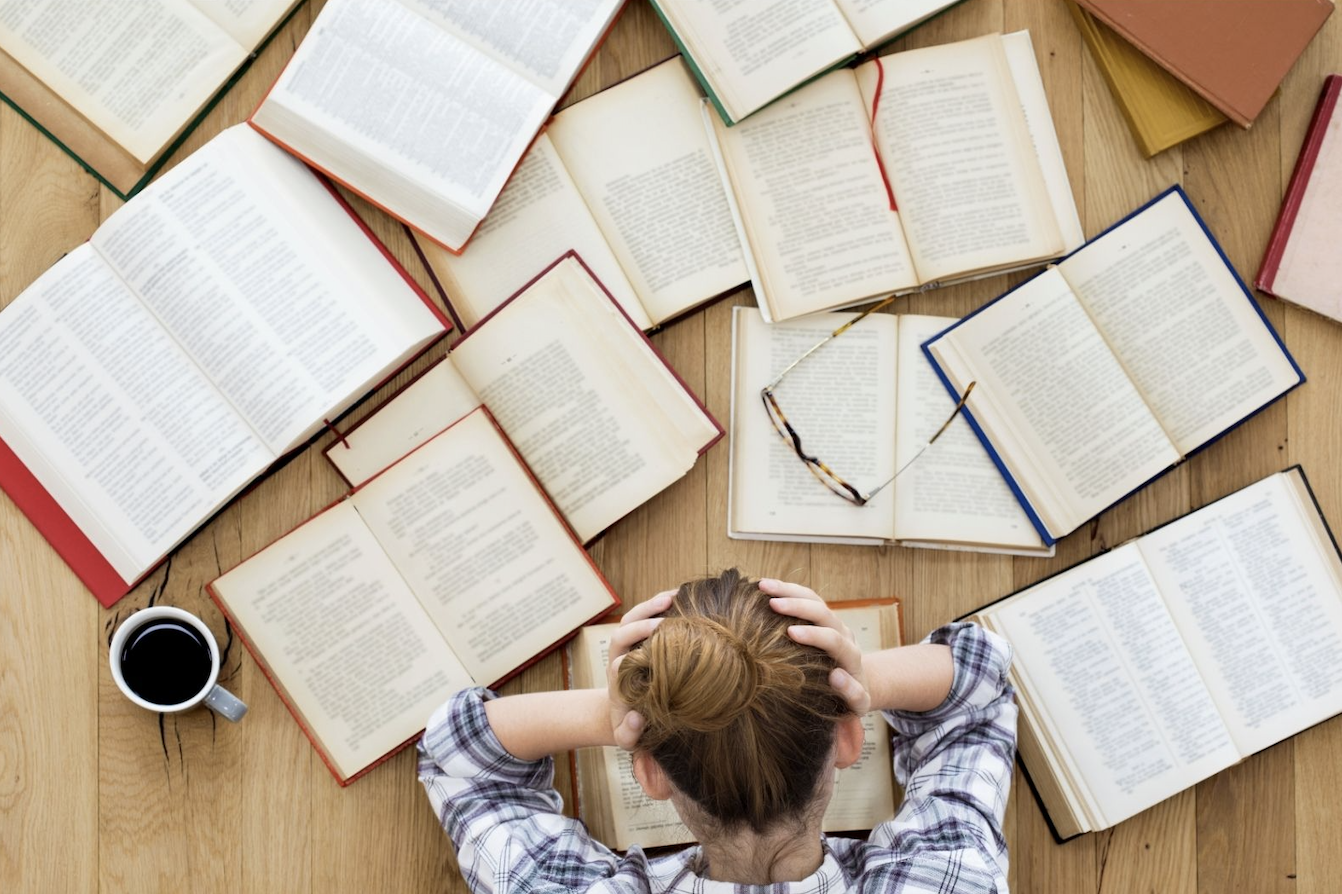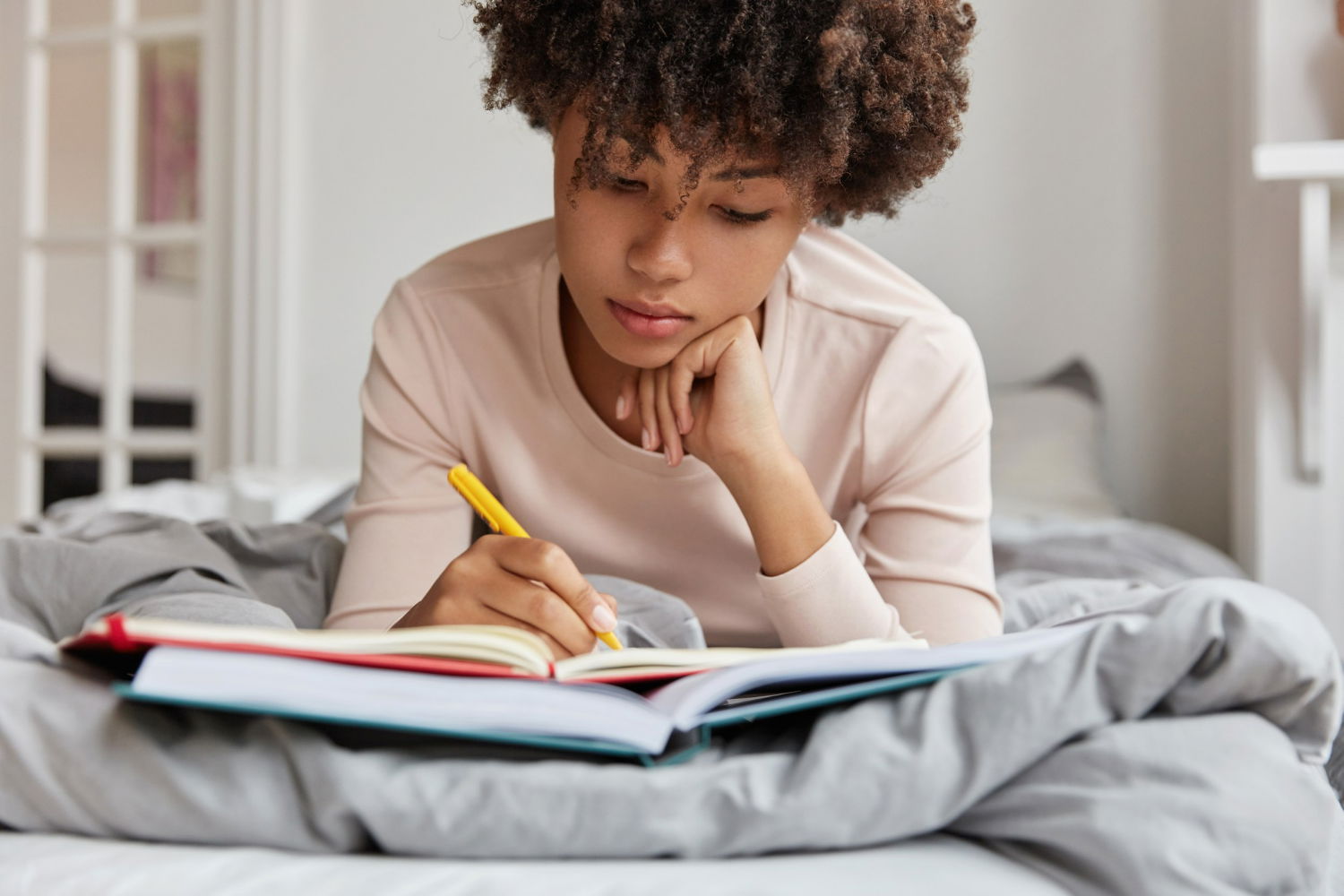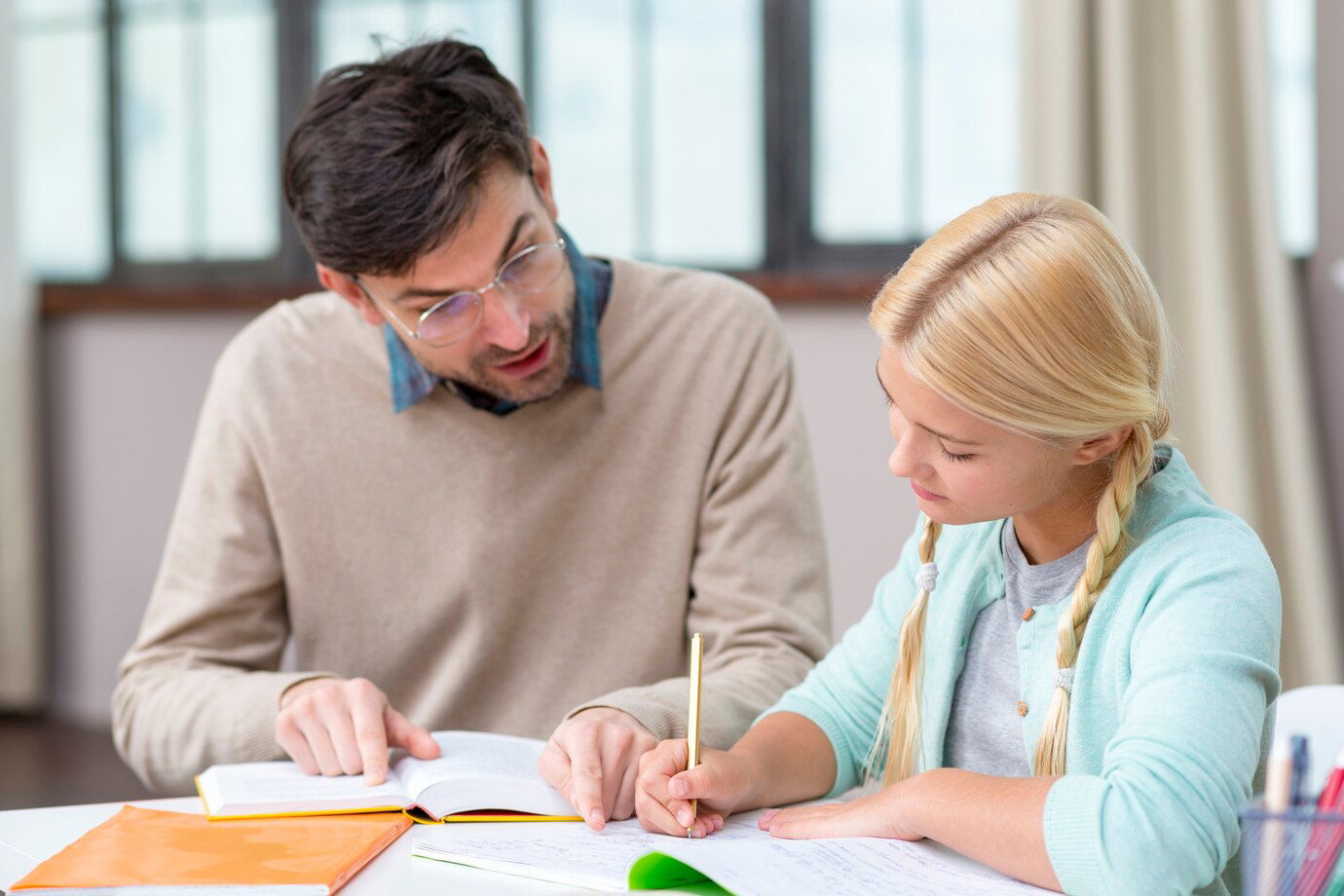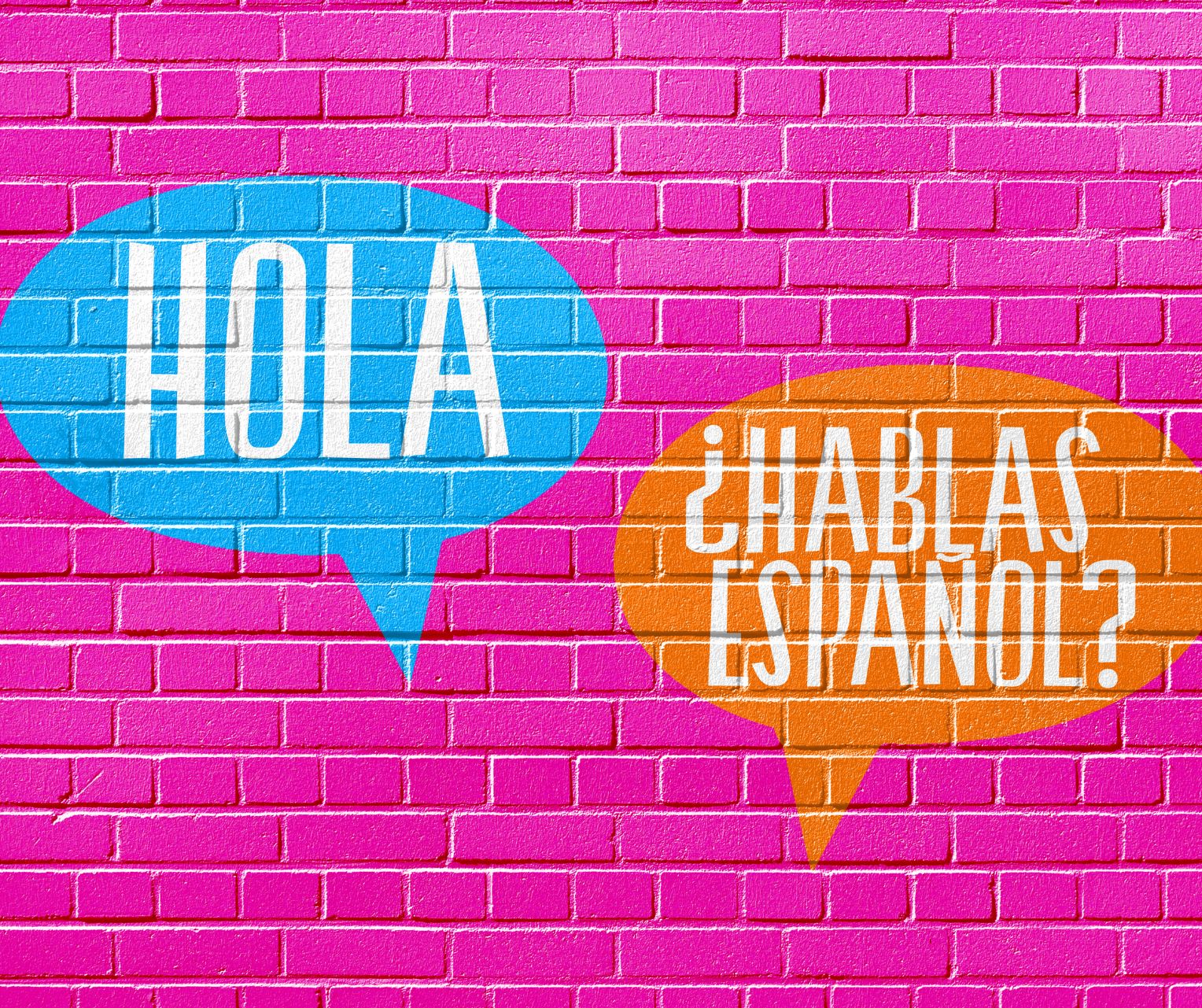IB French Language B: A Complete Guide

IB French Language B requires har work, time and dedication. This guide to IB French B gives you valuable tips on how to study the subject to meet your highest academic goals. It covers it all, from the structure of the course and exams (including the IB French oral) to suggestions for revision resources.
It’s all hard work and there is no getting around that. But the result is well worth it. You will be able to freely express your thoughts and understand others, which opens up new exciting possibilities for university, future employment, and lifestyle choices.
Chances are that you learned French in middle school and now want to develop it within the IB programme. If so, this post is for you.
What is IB French Language B?
French Language B is a comprehensive two-year IBDP course that provides core communicational skills and intercultural comprehension.
Its purpose is to enhance students’ abilities to understand French in written, spoken, and recorded forms. Along with this, it helps them freely express their own ideas or points of view in the linguistic and cultural environment.
Unlike French Ab Initio, Language B builds upon existing language knowledge. In other words, most students enter with approximately 2-3 years of prior French study. It is an optimal solution for those who have a foundation in French but aren’t quite ready for the native-level demands of French A.
SL and HL French Language B – What is the Difference?
As you may already know, you need to take 3-4 IBDP subjects at the Higher Level (HL) and the rest at the Standard Level (SL). With French Language B, both paths are available.
While SL and HL share assessment methods, they differ significantly in the depth of curriculum content and the skill acquisition demands.
The Standard Level consists of 150 recommended teaching hours over two years. Primarily, it focuses on everyday French communication. Students at this level work on mastering straightforward written, spoken, and recorded texts. At the same time, they get the valuable practice of communicating with a partner.
Overall, the IB French B SL syllabus emphasises prescribed topics and familiar contexts to provide a solid foundation in the French language.
Higher Level, in contrast, requires a minimum of 240 teaching hours over the same two-year period. Thanks to the greater depth of content, it allows for achieving significant progress in mastering the language. HL students engage with complex materials in various forms to develop the skill of communicating their ideas in more detail and depth. Apart from this, they will be able to express their arguments and justify them.
One more thing that sets HL French B apart is the introduction to two literary works. Naturally, your task here is to understand their ideas expressed in a more complex language. Along with this, you should be able to analyse these texts and showcase your appreciation.
Finally, HL French B goes beyond the SL topics prescribed in the curriculum. It prepares students to handle unexpected situations and contexts with more confidence. Thanks to this advanced path, they also get the skills and knowledge for further academic and professional use of French.
“During the first IB year, teachers sometimes advise struggling students to move from HL to SL. If this happens to you, you will be able to maintain your grades while simultaneously increasing your chances of getting a higher final mark.”
French Language B Overview
The course is built around three fundamental pillars, which help create proficient French speakers.
First of all, it aims to develop solid communication skills. Thanks to regular work with a variety of audio-visual materials and authentic texts, students improve their reading comprehension, written expression, and oral communication.
Second, the course focuses on cultural understanding. As an IB French B student, you will be able to explore diverse Francophone communities and gain a deep appreciation of French culture. This cultural immersion contributes to international-mindedness and understanding of how cultural context influences communication.
Third, you will have a chance to use your language skills in practice. In particular, you will learn to create various types of texts, express your opinions, construct convincing arguments, and even try your hand at comparative analysis.
“Besides these three pillars, the course is beneficial for other vital skills. For example, it is able to enhance problem-solving skills. As a result, you will be ready to find effective solutions in real-world situations involving the French language.
Also, as you work on various projects and assignments, you’ll get to see an improvement in your self-management and research capabilities.”
Finally, due to the interactive nature of language learning, it is possible to naturally boost your social interaction skills and cultural sensitivity.
Our Guide to IB French B Syllabus
Now let us discuss the core elements of the HL and SL courses, from their syllabus to assessment methods.
The Key Topics and Themes Covered in the IB French B Syllabus
Regardless of the level, the French Language B syllabus introduces five core themes:
- Identities. This theme explores the nature of self and what it means to be human. In particular, it focuses on personal attributes, beliefs, values, and other aspects that shape who we are. Along with this, it helps understand how language itself affects identity.
- Experiences. Thanks to this theme, students discuss various events and activities. For example, they explore topics including leisure activities, holidays and travel, life stories, as well as cultural traditions in French-speaking countries. At the same time, students are encouraged to share their own experiences.
- Human Ingenuity. This theme is about celebrating human creativity, innovation, and artistic expression. Specifically, it helps understand how creative thinking shapes our world through entertainment, media, technology, art, and scientific breakthroughs.
- Social Organisation. The focus here is on societal structures and interactions across social groups. Specific topics may include education systems, public services, transportation, workplace environments, as well as social issues in Francophone countries.
- Sharing the Planet. The final theme addresses global challenges and how different communities respond to them. You will have a chance to discuss environmental concerns, access to resources, peace and conflict resolution, and equality issues.
Naturally, HL students learn these themes in greater detail than their SL counterparts. Additionally, they read two literary works, the content of which aligns with the syllabus.
Overall, the course is extensive and packed with things to learn. Although French is not too hard to master if you already speak English, it may become a stumbling block with a lack of comprehension or diligence. If at some point you find yourself stranded and do not tackle it quickly, it’ll be a challenge to catch up. Therefore, if you struggle to make friends with le français, it may be a good idea to seek a qualified French tutor. TutorsPlus boasts a strong team of experienced tutors who, as IB teachers and examiners, have helped hundreds of students achieve their goals. You, too, can rely on our expertise in IB French curriculum and examination to boost your grades.
French Language B Assessment
The maximum grade you can get with French Language B is 7, just like in other IB subjects. Your final score depends on the marks you acquire in your exams. Although grade boundaries change every year, it is normally enough to gather more than 86% of the maximum marks (108/125) to get a 7.
Overall, the exam has External (75% of the total grade) and Internal (25%) components.
The External assessment includes two papers.
Paper 1
Paper 1 is a written exam assessing productive skills. Students have to answer one question from the choice of three.
While Paper 1 is identical in its structure at both levels, HL students must use more complex language and demonstrate high-order thinking skills. Besides, their responses involve a higher word count. Therefore, this section of the exam lasts longer at HL – 1 hour and 30 minutes vs. 1 hour and 15 minutes at SL.
Usually, the responses are within the range of 450-600 words. To make it in time, we recommend preparing some facts and ideas on the themes of the syllabus.
Overall, Paper 1 awards 30 marks.
Paper 2
Paper 2 tests receptive skills such as listening and reading. Both sections must be completed within 1 hour and 45 minutes at SL and 2 hours at HL.
Students need to listen to three audio passages and answer follow-up questions. This component carries 25 marks.
The reading section provides various short and longer texts as well as questions that test understanding of their content. Again, HL students should expect longer and more complex audio and written passages than their SL peers. The maximum number of available marks is 40.
The questions themselves typically require shorter answers. In particular, these are multiple-choice questions, true and fast statements, filling the gaps, etc.
Internal Assessment
When it comes to Internal Assessment, it takes the form of an Individual oral exam.
Basically, Internal Assessment is a 12-15-minute oral presentation based on the chosen stimulus. With 30 marks, it is accountable for 25% of the final grade for both levels. Having said that, there are some notable differences between SL and HL assessments.
SL Internal Assessment
Specifically, SL students receive two visual stimuli (a picture related to the syllabus content) and prepare their presentation based on one of them. They will have 15 minutes to jot down the key points of their speech. After that, they will have 3-4 minutes to report their ideas about the picture (its setting, people, their activities, etc.).
Next, is a 4-5 discussion with an examiner involving Q&A about your presentation. They may, for example, ask you to explain some of your points in greater detail, share your opinions on the situation you’ve seen in a picture, or ask about your experience.
The final stage of the Individual oral is a general discussion. Within 5-6 minutes, you will need to talk about other themes you’ve learned in your IB French B lessons.
HL Internal Assessment
At HL, the stimulus is a text excerpt from one of the two literary works studied in class. You need to choose just one of them for your presentation. To prepare for it, you will have approximately 20 minutes. Don’t try to write in detail everything you’d like to say. Instead, use around 10 bullet points to outline the main ideas.
Similarly to SL, the Individual Oral starts with a presentation, which summarises the chosen excerpt. At the same time, you should also try to provide some information about the full literary work such as its characters, plot, themes, etc. You are welcome to share your views and opinions about the text as well. Overall, the presentation itself lasts 3-4 minutes.
After you’ve made your final point, you will have a 4-5-minute discussion with the examiner. They will encourage you to share more information on your ideas, clarify some points, discuss your experiences, and show an appreciation of the francophone culture.
Lastly, you will have a discussion that goes beyond the literary work. Still, it will concern the themes of the course. You might need to explain how they impact your life or identity, which personal experiences matter the most to you, which cultural aspects you find the most fascinating, etc. The duration of the general discussion is 5-6 minutes.
The Types of Texts on the IB French B Exam
The topics you will meet at your exam align with the syllabus and its five prescribed themes. They will come in both written and audio forms.
In terms of text types, they usually belong to the following three categories:
- Personal informal communication (short text messages, emails, diary entries, personal blog entries, phone calls, and so on);
- Professional formal communication (business emails and letters, instructions, proposals, presentations, etc.);
- Mass media (podcasts, public speeches, advertisements, newspaper articles, news reports, web pages, and others).
Book free trial with our certified IB French teachers today
100 % of tutors are certified teachers and examiners
How to Get Top Marks in IB French Language B
If you’ve chosen French for your IB language option, you know how important the results are. Unfortunately, you won’t be able to achieve your goals if you only study sporadically. The key to success is consistent effort throughout the two-year program.
Rather than rushing through topics, you should take time to fully understand each concept before moving forward. In other words, you need to stick to a more methodical and structured approach.
Essentially, it means working through each topic thoroughly to make sure you truly understand their key concepts. Along with this, it is important to keep track of new vocabulary and grammar points. But don’t just write them down and turn the page. Instead, try to find ways to regularly use them in various contexts.
“It is always a good idea to combine your studies with exposure to French media and culture. This way, you can naturally develop language fluency as well as find out more about the culture of the francophone world. So, set aside at least 30 minutes each day to watch news or video blogs, listen to podcasts, and read French content.”
Last but not least, you should practice with past papers and mock exams as much as possible. They are useful not only to give you a better idea of the exam format and its requirements. They also provide valuable experience across the essential skills – reading, writing, and hearing. When it comes to speaking, you can try to give speeches in front of the mirror or, even better, get a study buddy. This way, both of you can gain more confidence before you head to your final assessment.
Helpful Resources to Improve IB French Skills
Finally, we’d like to suggest some useful materials and resources you can (and should!) use to become a better French speaker.
- The IB French B Course Companion offers structured learning aligned with the IB curriculum;
- Duolingo is an excellent app for daily practice and vocabulary accumulation;
- Memrise is helpful for memorising phrases and cultural expressions;
- Quizlet is an online resource you can use to create flashcards;
- Linguee will come in handy to understand words in context and find authentic usage examples;
- France.tv will allow you to stream French programs related to course themes. It is ideal for improving listening comprehension;
- RFI Français Facile is a topic-specific podcast aligned with the IB French B syllabus. Besides, it provides interactive exercises for comprehension practice;
- “Learn French with Alexa” is a YouTube channel known for clear explanations of grammar and pronunciation;
- “Français Authentique” is one more YouTube resource featuring natural French conversation and cultural insights.
Ace Your IB French B Exam with TutorsPlus
Hopefully, our Guide to IB French B has answered all your key questions and it became a bit clearer how to revise for your exam.
Do you have other questions? Or maybe you require help with exam practice and preparing for your French B oral? Then don’t hesitate to get in touch.
At Tutors Plus, we stick to an individual approach to tutoring. Our goal is to reveal your weaknesses and strong points to eliminate the former and improve the latter. Do you think your perception of spoken French could be better? Or maybe your ability to get your point across leaves much to be desired? It is in our power to help you get better at the areas you’re lagging behind. Let us prove it to you.
Our tutors have immense experience in teaching French, and they’d be happy to assist you in mastering it. Let us be your helping hand throughout your challenging educational journey. Call us at 022 731 8148 or send your message via to learn how we can be of service.
By Sara Lloyd
Sara has been an education consultant for TutorsPlus for 15 years, and is an expert on international IB education. She is also a parent of two lively children.















